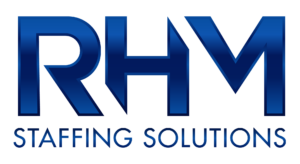Why a Bad Hire is More Expensive Than Ever

There’s never been a “good” time to make a bad hire.
Missing the mark on a candidate, whether it’s an entry-, mid-, or senior-level position, has long topped the “Don’t Do This List” hanging from every hiring manager’s disk. Not only does a bad hire hurt the overall organization, but being responsible for that decision can severely impact your own career.
Making this issue all the more pressing, today’s historically tight labor market has made the costs associated with a bad hire even steeper.
Unemployment hovers around record lows, searches take longer, wages are higher; all of this and more puts even more pressure on organizations to hire as effectively as possible.
But just how high are these costs?
How little room for error is there in today’s candidate-driven market?
We’ll break down a few of the latest insights on the costs behind a bad hire below.
How bad hires cost you money (and more)
Odds are, no matter how supremely talented you are as a hiring manager, you’ve made a bad hire before. Whether you were duped by a candidate in an interview, or took a chance on someone with little experience and gave them a shot, bad hires happen, and sometimes there’s little that can be done to avoid it.
If that’s the case, then you’ve probably seen a few of the more obvious costs play out in front you: the time and resources spent recruiting, interviewing, and onboarding that candidate are sunk costs and then you’re back at square one.
But there are additional, less obvious costs at work behind the scenes.
In a recent study, analysts from the Brandon Hall Group, a human capital research and analyst firm, breakdown the extent of how a business is potentially impacted when a new hire becomes newly fired:
- Recruitment advertising fees and staff time (we already covered this)
- Relocation and training fees for replacement hires
- The negative impact on team performance
- Lost customers
- Outplacement services
- Weakened employer brand
- Litigation fees
Beyond just the simple dollars and hours lost to a bad hire, there are waves of negative impacts that emanate outwards, affecting nearly every aspect of an organization.
Working with a bad coworker can damage the performance and morale of good workers, which in turn can damage your employer brand as they voice their frustration throughout their networks.
Client relationships can potentially be damaged beyond repair as a bad hire repeatedly fails to meet their expectations.
As these costs continue to compound one another, it isn’t difficult (although it may seem hyperbolic at first) to see how one employer branding executive priced the cost of a bad hire at ~$240,000.
Clearly, organizations industry-wide have an extraordinary incentive to optimize every part of their screening, application, and interviewing process to reduce the chances of missing the mark on their next hire or round of hires—especially in a current market where open jobs outnumber by one of the widest margins ever.
But is that enough?
Enlist the help of a specialized staffing firm
For as many processes as you can optimize internally, partnering with an experienced, proven staffing firm can mitigate the costs of a bad hire more than perhaps anything.
They certainly aren’t free, but the qualified, committed candidates (good) staffing firms connect you with ensures you not only get someone who can do the job, but also will be committed to the long haul.
At RHM Staffing Solutions, our team of veteran recruiters has spent their entire career specializing in the engineering, commercial, and light industrial sectors. This focused experience allows us to pinpoint the exact candidate our clients need, time and time again (and faster and cheaper than they think, too).
Give us a call today to learn how our vast network of talent and industry experience can help you overcome whatever hiring challenge you may be facing.
